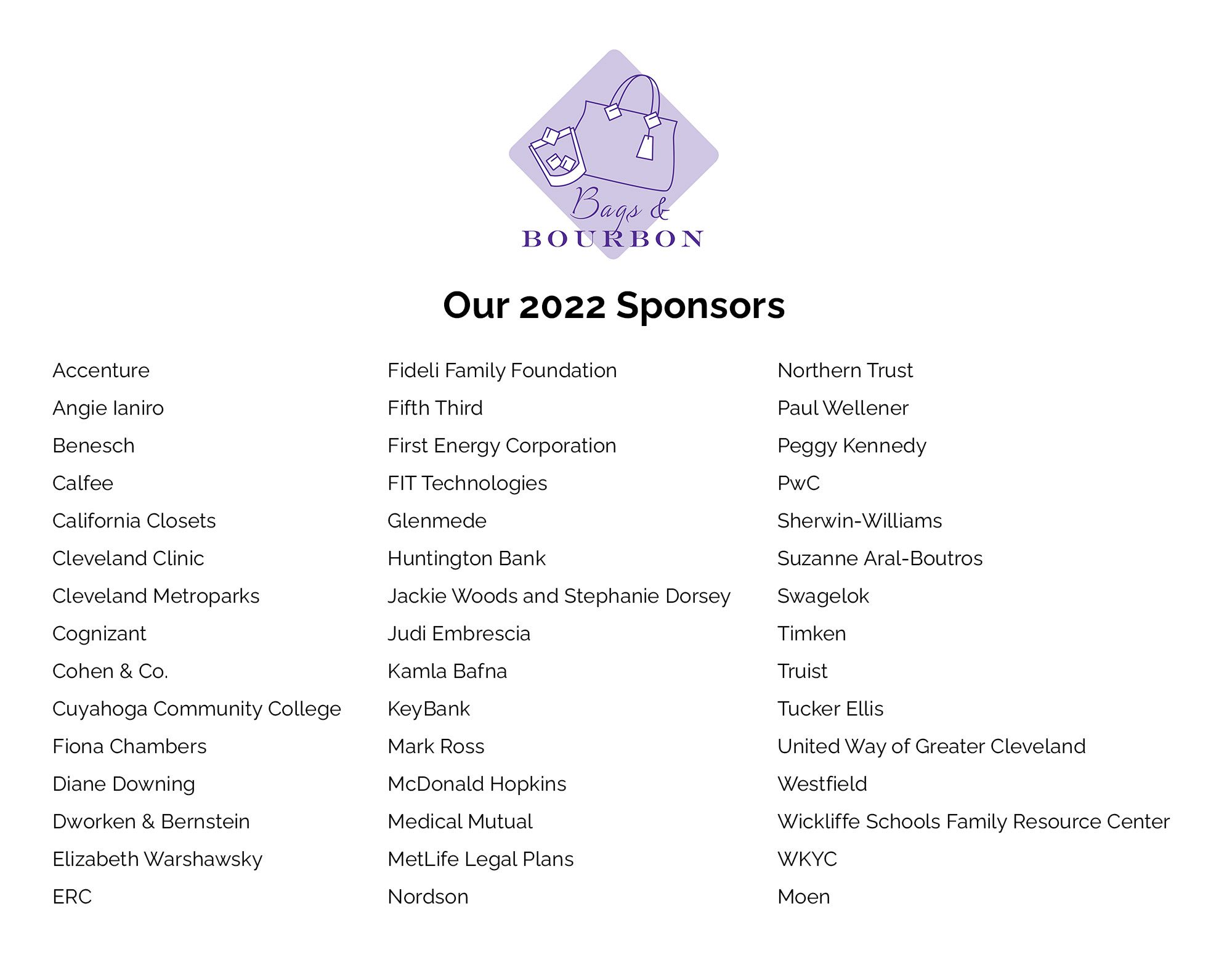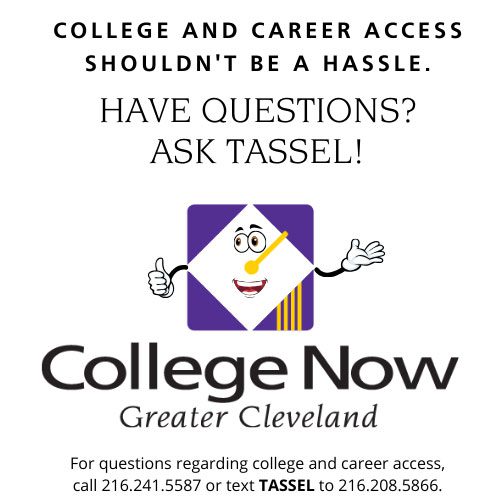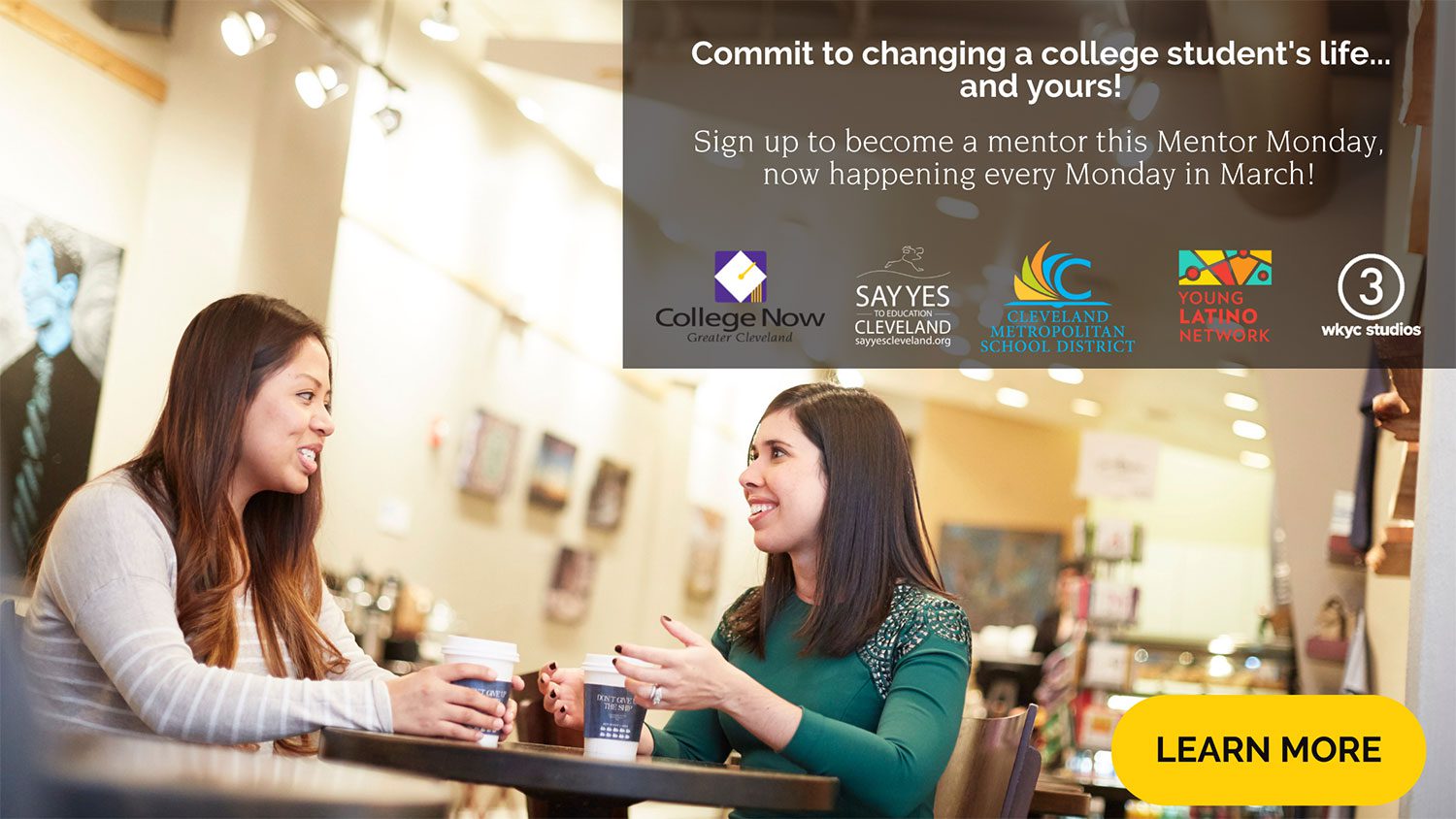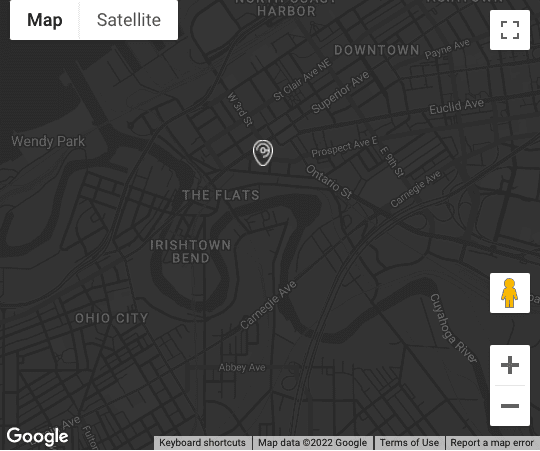College Now Greater Cleveland
Professional Development Sessions
At College Now, we’re committed to shaping the future of career advising and student success through access to postsecondary education. Through collaboration with the Cleveland Metropolitan School District (CMSD), community organizations and stakeholders, we’ve developed a comprehensive approach to ensure that every student has a clear path to success.
Our curriculum includes essential modules that are designed to equip you with the knowledge and skills you need to foster trust with students and enhance your professional development in the education field.
This curriculum has been developed and will be facilitated by Dr. Monyka Price, College Now’s Senior Director, Advising, Programs and Services.
All sessions below will be hosted in at College Now’s downtown offices. We encourage you to learn more about our upcoming sessions below!
Questions? Please contact Dr. Monyka Price via email at [email protected] or via phone at 216-241-5587.
 Emotional Intelligence
Emotional Intelligence
Emotional Intelligence (EI) involves recognizing and managing emotions in oneself and others, impacting behavior and relationships. The Emotional Intelligence session covers four EI domains: Self-Awareness, Self-Management, Social-Awareness and Relationship Management.
Improving EI helps replace counterproductive behavior, enhancing job performance, relationships and overall well-being. Leaders with high EI create a positive work culture. Growing EI is beneficial for educators and advisors when working with students, enabling better communication and support. The workshop includes assessments, videos and activities to enhance EI and improve teaching, advising and student support approaches.
 Crucial Conversations
Crucial Conversations
This session will focus on teaching participants how to effectively handle crucial conversations in both professional and educational settings. Based on the book “Crucial Conversations: Tools for Talking When the Stakes Are High”, this session will help individuals navigate discussions in which emotions run high and differing opinions exist. The session includes self-assessment, a summary video of the book and practical exercises.
The key points covered are the distinction between challenging and crucial conversations, the importance of recognizing and addressing strong emotions and opposing opinions and the two destructive patterns in communication: silence/avoidance and violence/verbal attacks. The session emphasizes creating a safe and respectful environment for conversations with a mutual purpose and common respect.
Participants will gain the skills to employ the Crucial Conversations model, improve listening abilities and learn to resolve crucial conversations effectively.
 Thanks for the Feedback
Thanks for the Feedback
This session covers the importance of giving and receiving feedback effectively, based on the book “Thanks for the Feedback” by Douglas Stone and Sheila Heen. Feedback is valuable for personal and professional growth, and understanding how to handle it is crucial. There are three types of feedback: appreciation, coaching, and evaluation. The effectiveness of feedback can depend on the relationship between the giver and receiver.
The session explores various forms of feedback, challenges in receiving feedback and strategies to improve feedback handling. It aims to help participants use feedback for personal growth through activities like group work and roleplay.
 Know Your Why
Know Your Why
This introspective session is designed for adults to help students discover their purpose, align their principles with their actions, make contributions that impact humanity and work towards self-actualization.
The session emphasizes the importance of self-discovery and how understanding one’s personal and professional purpose can enhance educators’ effectiveness in guiding and mentoring students. It encourages participants to reflect on their own educational and career journeys and how their experiences can assist students in shaping their postsecondary education and career plans.
The session introduces the concept of “The Golden Circle” by Simon Sinek, which consists of three dimensions: WHY (core belief), HOW (actions to realize the belief), and WHAT (results of those actions). It highlights the power of intrinsic motivation and the ability of effective leaders to inspire change by focusing on WHY.
Ultimately, the goal is to help students discover their purpose, make meaningful contributions and have a positive impact on the world.
 Adolescent Psychology
Adolescent Psychology
This professional development session, led by Dr. Liz Goncy, focuses on understanding the psychological and physiological aspects of adolescents and how adults can support their development. The session covers the rapid changes in adolescents’ brains and bodies, their exploration of identity and independence and the three fundamental changes during adolescence: biological, cognitive and socio emotional.
Participants are encouraged to recognize the ongoing development of the prefrontal cortex and its impact on adolescents’ mental and emotional state. The session also emphasizes the importance of guiding adolescents in setting long-term goals and offers insights and activities to help adults better connect with and support them. Ultimately, it aims to foster empathy and more effective advising and interventions for adolescents.
 Culturally Responsive Advising
Culturally Responsive Advising
This is a professional development session focused on culturally responsive advising and pedagogy. It aims to help adults become more aware of their biases and prejudices, understand diversity dimensions and systemic issues, and develop cultural competence. Participants will also learn about risk and protective factors in students’ lives, promoting a growth mindset. The session emphasizes the importance of acknowledging cultural differences, combating biases, and fostering relationships with students through active listening and support.
 The Power of Moments
The Power of Moments
This is a professional development session based on “The Power of Moments” by Chip and Dan Heath. It focuses on helping participants become authors of richer life experiences and creating extraordinary moments for students in their postsecondary education and career planning. The session explores the elements of defining moments, such as elevation, pride, insight and connection. The goal is to connect adults with students, help them plan their educational and career paths, and make these experiences engaging and memorable. Participants will gain insights into the importance of moments and learn how to create meaningful connections with students, recognize their efforts and enhance their overall experiences.
 Empowering Students for Effective Career Conversations
Empowering Students for Effective Career Conversations
This professional development session focuses on advising, mentoring and coaching students for their postsecondary education and career paths. It aims to empower students by facilitating candid career conversations and providing essential tools to help them create academic and career plans. The session addresses the changing educational and career landscape, particularly in relation to students’ aspirations and needs.
To institutionalize this effort, the Planning and Career Exploration (PACE) framework, aligned with the Greater Cleveland Career Consortium (GCCC), is being implemented from sixth through twelfth grades with plans to expand from prekindergarten through high school. This framework involves various career-based learning opportunities such as internships, externships, shadowing and experiential learning.
 Ohio’s Career Technical Education
Ohio’s Career Technical Education
This professional development session builds upon the “Empowering Students for Effective Career Conversations” program and is informed by resources from the Ohio Department of Education. It covers the changing landscape of postsecondary education and careers, career technical education (CTE) options, and guiding students in creating personalized education and career plans. The session equips participants with resources to help students design their course offerings, make informed career choices and access available support. CTE is defined as education that blends academic and technical skills to prepare students for the workforce. The focus is on Ohio Department of Education (ODE) curriculum, certifications and internships.
Ohio law mandates access to CTE for all students through Career-Technical Planning Districts (CTPD), which include various types of educational agencies. Collaboration with the Ohio Department of Higher Education allows high school CTE students to earn postsecondary credits through Career-Technical Assurance Guidelines (CTAG) or College Credit Plus (CCP), enabling them to pursue various degrees, apprenticeships and industry credentials.
 Trauma: Awareness, Connection, Healing, and Thriving
Trauma: Awareness, Connection, Healing, and Thriving
This professional development session focuses on helping adults understand students’ lived experiences, including trauma, and provides tools and resources to support their physiological and psychological needs. It covers topics such as adolescent brain development, the Adverse Child Experiences (ACE) Study, and the impact of trauma on the brain. The session emphasizes the importance of adult connections in buffering and supporting young people, explores the Sequence of Engagement framework and helps participants develop self-care plans to promote resilience and well-being. Additionally, it introduces the concept of Healing-Centered Engagement to foster a culture of healing for young people. Participants also learn how to access various resources to guide students towards hopeful and opportunistic postsecondary education and career pathways.




